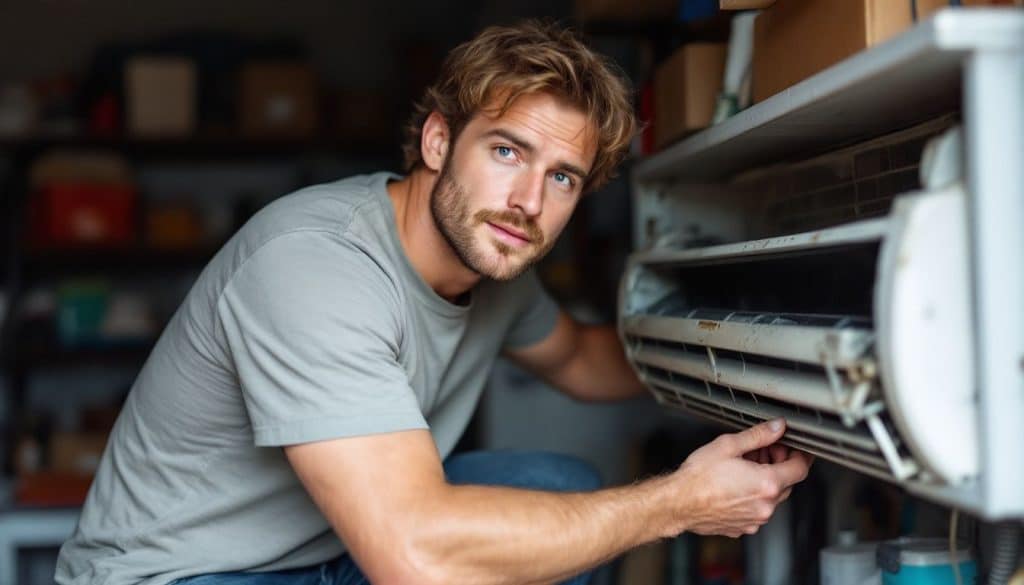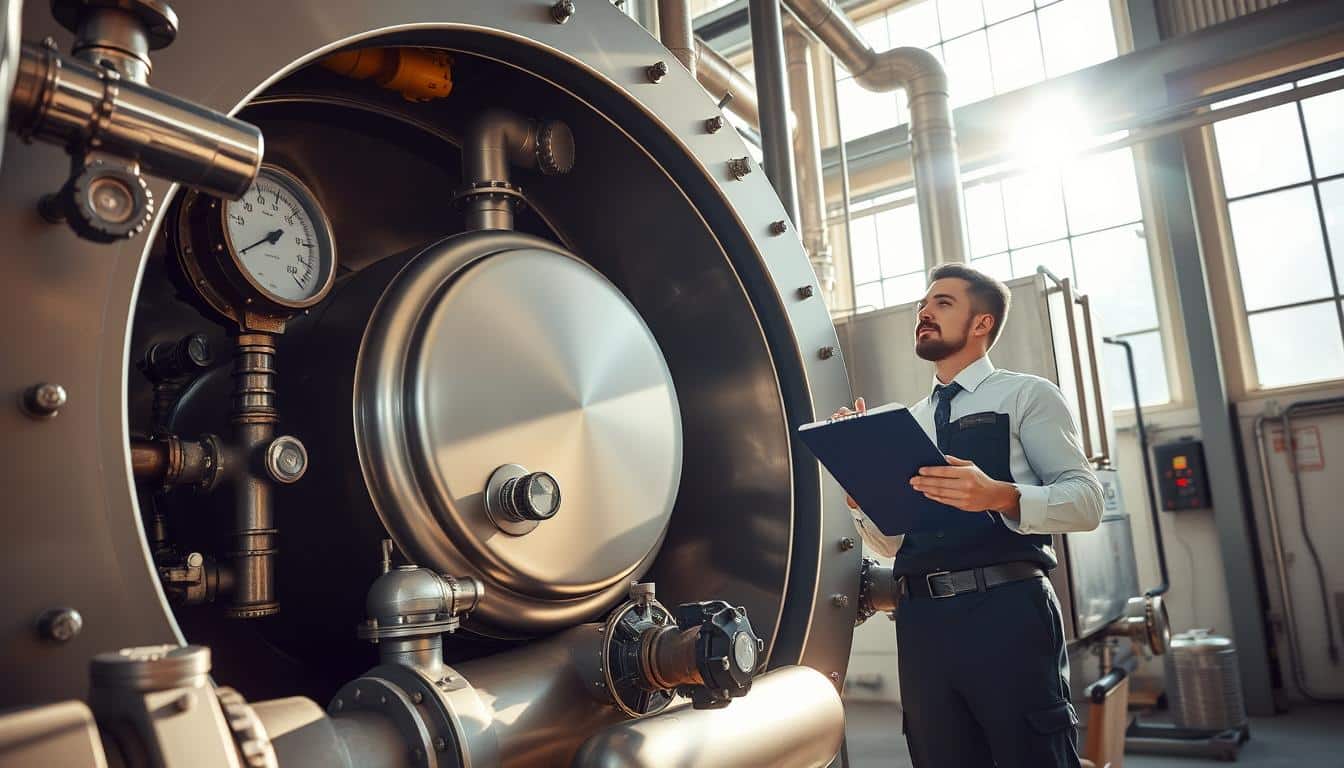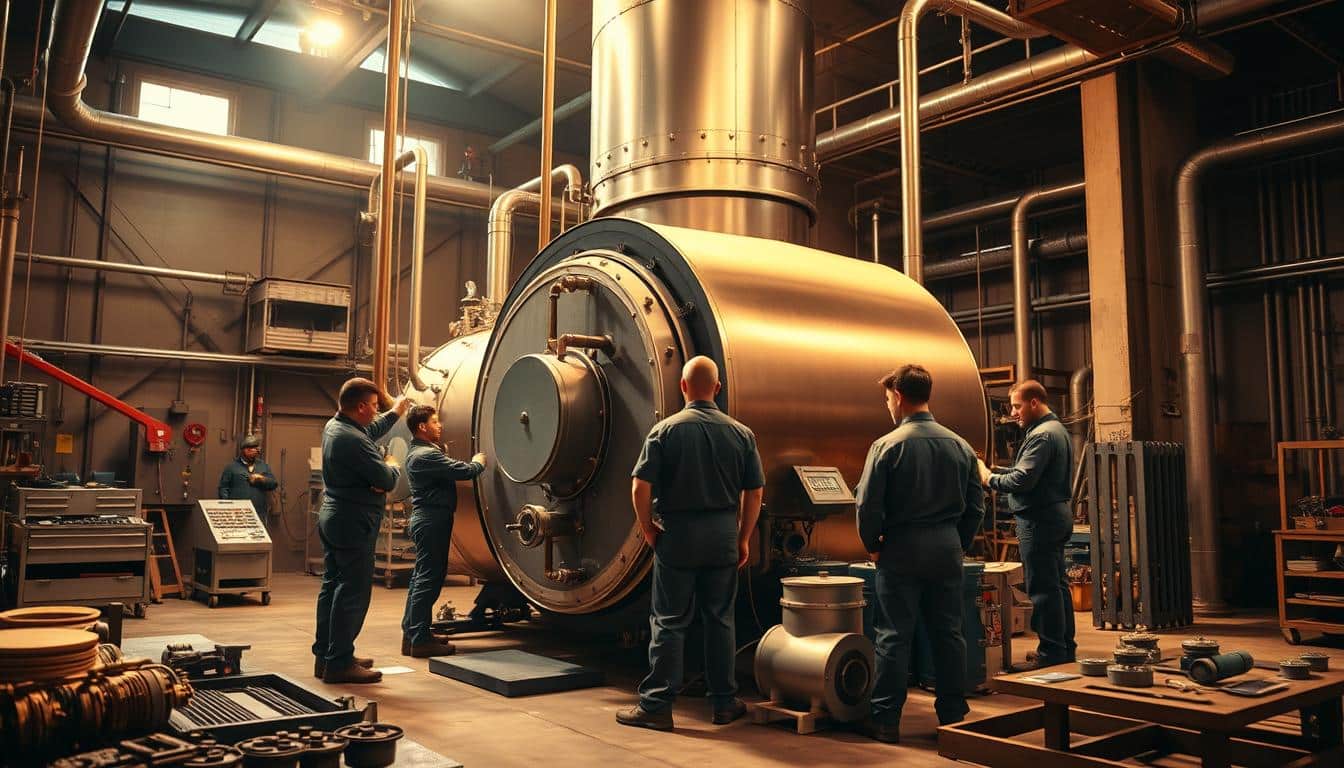Table of Contents
On a hot summer day, I looked at my broken AC unit and thought, Can I repair my AC unit myself? I wanted to beat the heat and be my own hero. Summer is here, and our AC units are working hard. But sometimes, they can’t keep up with the heat.
We’ve all felt frustrated when our air conditioner doesn’t cool us down.
After some research, we found something hopeful. Many common AC problems can be fixed by ourselves. In this blog, we’ll share easy DIY tips for fixing your air conditioner. These tips can save you money and bring back cool breezes in your home.
These tips are for homeowners and businesses alike. They help with basic troubleshooting and maintenance tasks. Let’s take back our comfort from the summer heat together!
Key Takeaways
- You can fix common AC issues like it not turning on or not cooling well by checking simple things such as the power supply, thermostat settings, and air filters. Changing a dirty filter or cleaning coils can improve your AC’s performance.
- Regular maintenance is key for your AC to work well. This includes replacing air filters monthly, keeping the outdoor unit clean, ensuring proper insulation, and monitoring thermostat settings to save energy and avoid costly repairs.
- Some problems need a professional’s help. If you hear loud noises from your AC or see serious water leaks, you should call an expert like Raye-Van Enterprises. Safety is important when dealing with electrical parts or gas lines.
Common AC Problems You Can Fix Yourself
Many AC issues are simple to fix. We can handle problems like the unit not turning on or not cooling well.
AC not turning on
An AC unit may not turn on for several reasons. First, check the power supply. Make sure it’s plugged in and the circuit breaker hasn’t tripped. If you find a blown fuse, replacing it might help get our system working again.
Another thing to check is the thermostat setting. Sometimes, it can be set too low or turned off by mistake. Setting it to a cooler temperature often solves this issue. By troubleshooting these simple fixes, we can save money and time before calling for professional HVAC repair assistance.
Insufficient cooling
Insufficient cooling can be a big problem for our AC unit. We might notice that the air feels warm, even when we set the temperature low. This issue may happen for several reasons.
A dirty filter can block airflow and reduce cooling efficiency. Checking and replacing air filters regularly helps a lot.
Sometimes, the coils get dirty too. Clean coils absorb heat better and will cool our space more effectively. If we hear strange noises or see water leaks, these signs may indicate trouble with our system as well.
Addressing these problems quickly allows us to keep our home comfortable without needing professional help every time. Taking on DIY air conditioner repair tasks like this makes sense for homeowners looking to save money while maintaining their comfort.
Strange noises from the unit
Strange noises from the AC unit can signal a problem. We might hear buzzing, rattling, or squealing sounds. These noises often mean something is loose or broken.
A loose fan blade can rattle around and cause noise.
A worn-out belt might squeal as it tries to work.
We should not ignore these sounds. They help us diagnose issues early on in our air conditioner troubleshooting. Fixing them quickly could save us time and money later on in our home AC repair efforts.
Listening closely gives us clues about what needs attention right away before it turns into a bigger issue with the AC unit maintenance.
Water leaks around the unit
Water leaks around the AC unit can cause big problems. We often see water collecting on the floor or outside our air conditioner. This can happen for a few reasons.
Clogged drain lines are a common issue.
If this happens, we need to clean them out.
Another reason could be low refrigerant levels. It means our system can’t cool properly, which might lead to leaks. Checking and fixing these issues is something we can do ourselves with some basic tools and knowledge.
Keeping up with air conditioning maintenance helps avoid these leaks in the first place.
Preventive Maintenance for Your AC
Regular care is key to keeping your air conditioner running well. Small steps can save time and money on big repairs. Keep reading to find out how to maintain your system effectively!
Regularly replace air filters
We must regularly replace air filters in our AC units. Dirty filters block airflow. This makes our unit work harder.
Changing the filter every month is best for performance. It helps keep the air clean as well. A clean filter improves airflow and efficiency.
Regularly replacing air filters is a key part of DIY maintenance for our AC systems.
Keep the outdoor unit clean
We keep our outdoor AC unit clean for better performance. Dirt and leaves can block the airflow. This causes our system to work harder than it should.
Regularly check the area around the unit. Remove any debris we find there.
A clean outdoor unit helps ensure proper insulation and efficient cooling. We can use a garden hose to rinse off dirt gently. Inspect coils for dust buildup too.
A clean coil helps our AC cool efficiently, saving us money on energy bills.
Keeping the outdoor space tidy is key for DIY air conditioning maintenance and repair tips that work well.
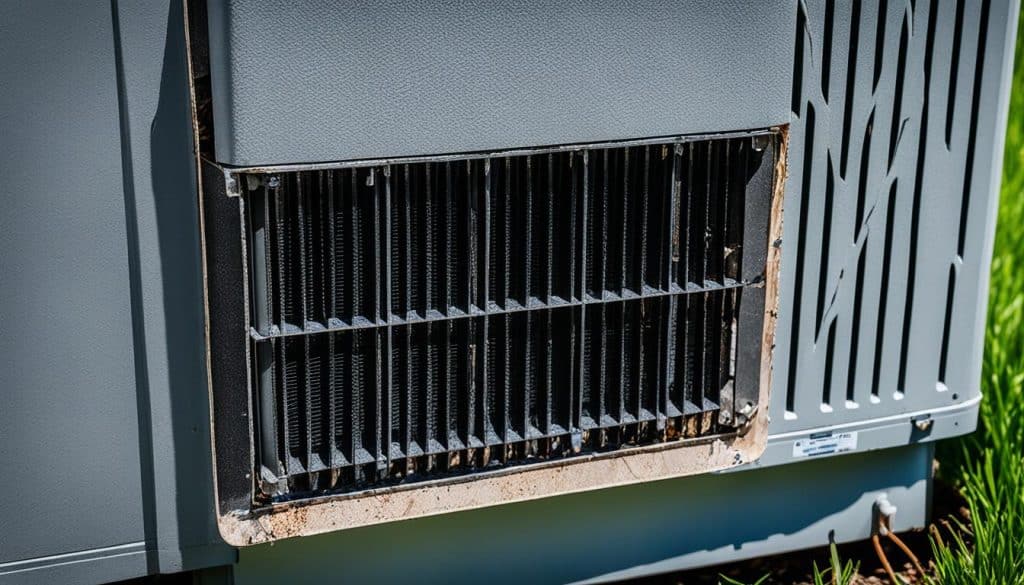
Inspect and clean coils
We need to check and clean our AC unit’s coils. Dust and dirt can make it hard for the system to cool. Use a soft brush or cloth to clean them gently.
Remember to turn off the power before starting.
Cleaning the coils improves air conditioning efficiency. We should do this at least once a year. It’s a simple DIY fix that saves energy and keeps our AC running well.
Ensure proper insulation
Proper insulation is essential for our AC’s efficiency. Check the seals around windows and doors. Gaps can let air escape, making our system work harder and increasing energy bills.
Also, insulate ducts in attics or crawl spaces. Insulated ducts keep cool air from losing temperature. This keeps our homes comfortable and saves money.
By ensuring good airflow, we avoid unnecessary costs on home air conditioning repair.
Monitor thermostat settings
Always check our thermostat settings. A well-set thermostat helps our AC unit work better. Mistakes in settings can make our home feel uncomfortable.
Incorrect settings can make our air conditioner run more, using extra energy and raising bills. Find a comfortable setting and keep it there. Regularly monitoring these settings helps avoid cooling problems and saves money.
Check for leaks
Checking for leaks is key in AC unit troubleshooting. Look for any signs of refrigerant leaks or water leaks around our air conditioner. Wet spots or puddles mean trouble.
A leak can make our system work harder and increase energy bills.
Inspect the lines connected to the outdoor unit for tiny cracks or loose fittings. Fixing these issues early improves our AC’s efficiency and avoids costly repairs later.
Keeping an eye on leaks enhances home air conditioning repair efforts and saves money in the long run.
Maintain a clear drain line
We need to keep the drain line of our AC unit clear. A blocked drain can cause water to back up, leading to leaks and damage. Check for dirt or debris in the line.
Using a wet/dry vacuum can help remove clogs easily. Regular maintenance ensures our air conditioner works better and lasts longer. A clean drain line enhances our DIY air conditioning fix skills and saves money on repairs.
When to Call a Professional
We can fix many air conditioning problems ourselves. Simple issues like a dirty filter or low refrigerant can often be handled at home. But, certain situations need expert help. If our AC makes loud noises or has serious leaks, calling a professional is wise.
Safety comes first. We should not try repairs that involve electrical parts or gas lines unless we are trained. Regular maintenance is key to keeping our AC unit running well, but sometimes we all need a hand from an expert in home air conditioning repair.
Knowing when to call someone can save us time and trouble in the long run.
Conclusion
We found out fixing our AC unit is easy. Issues like it not turning on or leaks can be fixed with a few steps. Keeping it maintained is essential for its performance.
By following these tips, we save money and time.
For more help, check online resources or local services. Let’s take action now!
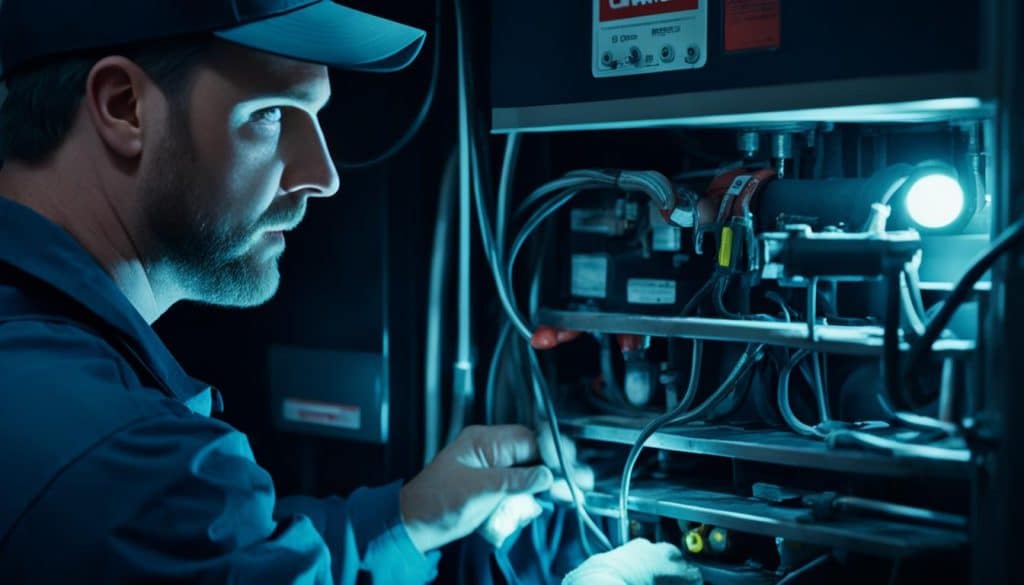
FAQs
Can I repair my AC unit myself?
Yes, you can use a DIY guide to air conditioner repair. It helps you troubleshoot and fix your home air conditioner.
What does an AC unit troubleshooting guide offer?
An AC unit troubleshooting guide gives you step-by-step instructions. It helps you identify problems with your home air conditioning system. It also offers tips for repairs.
Are there any specific tips for home appliance repair of an AC unit?
Yes, maintenance is key in home appliance repair, including your AC unit. Regular cleaning and checking components can prevent major issues.
Is it safe to do a DIY HVAC repair at home?
While some minor issues can be handled through DIY HVAC repair methods, more complex problems may require a professional technician’s expertise.
Where can I find reliable home air conditioning repair tips?
You can find trustworthy advice on various online platforms. They provide guides on DIY HVAC repairs and maintenance.

